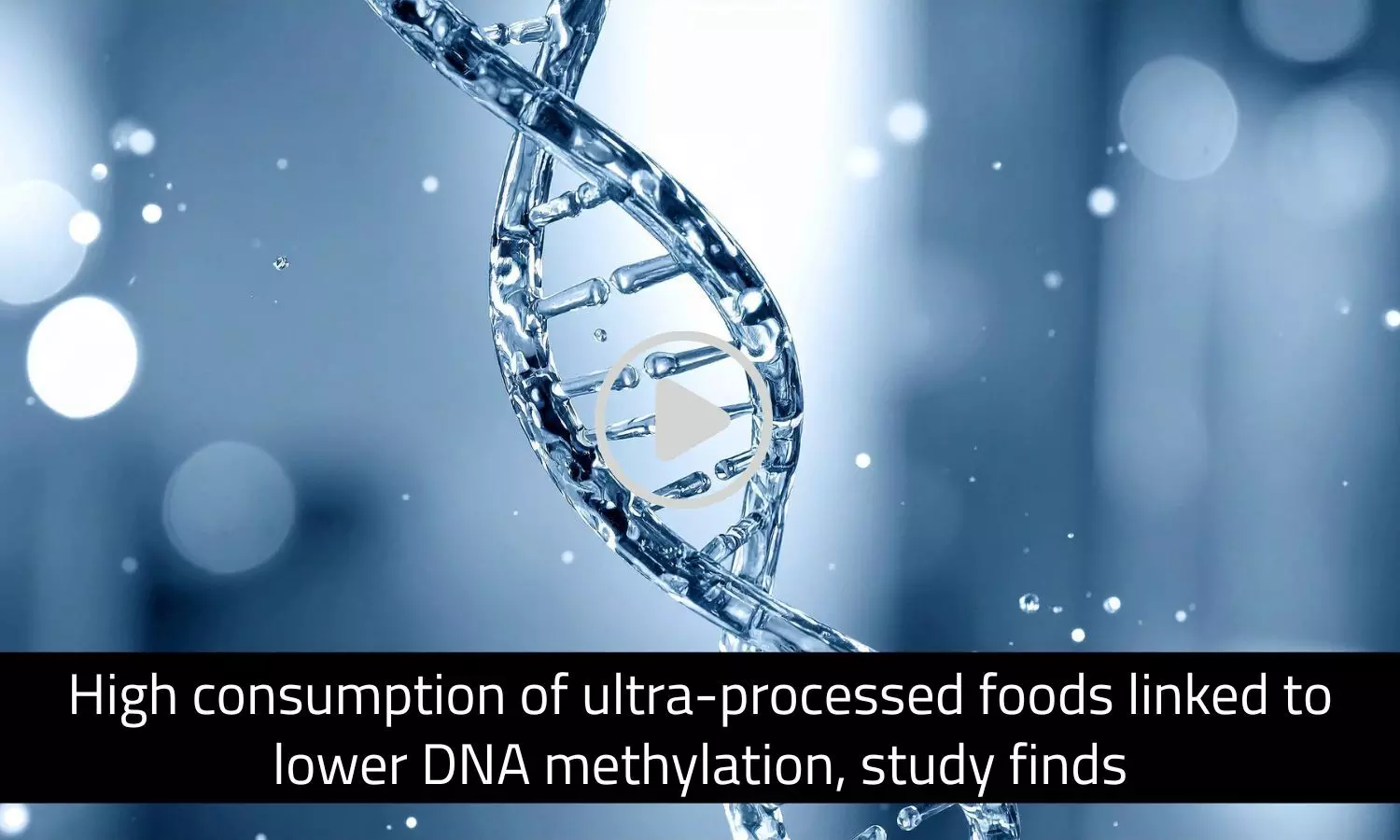Ultra-Processed Food Intake Linked to Epigenetic Changes in Women: Study Finds
- byDoctor News Daily Team
- 06 November, 2025
- 0 Comments
- 0 Mins

Scientists have recently investigated how ultra-processed food (UPF) consumption affects epigenetic regulation, focusing on DNA methylation in peripheral blood leukocytes of women. Published in Nutrients, this pilot study found that women with higher UPF intake exhibited 80 differentially methylated regions (DMRs), mostly hypomethylated, suggesting that UPFs may influence gene expression linked to health outcomes, although causality remains unproven. Ultra-processed foods, defined by the NOVA system, include ready meals, packaged snacks, and sugary drinks rich in preservatives and additives. Their consumption has surged globally, paralleling rises in obesity, chronic diseases, and mental health issues. Beyond poor nutrition, UPFs may disrupt health via altered food structures and contaminants. Epigenetic mechanisms like DNA methylation, which regulate gene activity without altering DNA sequence, may mediate these effects. This exploratory cross-sectional study included 30 women aged 20–40 years, with BMIs 18.5–39.9 kg/m², excluding those with metabolic or chronic illnesses. Dietary intake was assessed by three-day food records, classifying foods by NOVA criteria to estimate UPF energy contribution. Participants were divided into tertiles of UPF consumption, with epigenetic analysis comparing the lowest and highest groups. Genome-wide DNA methylation profiling was conducted using next-generation sequencing following bisulfite conversion. Statistical analysis identified DMRs and correlations between methylation patterns and UPF intake. The low-UPF group consumed 14% of energy from UPFs, while the high-UPF group consumed 45%. Fifteen high-quality DNA samples were analyzed. The groups showed no differences in body composition. Surprisingly, the low-UPF group had higher LDL and non-HDL cholesterol levels. Genome-wide methylation profiling revealed 80 DMRs, predominantly hypomethylated in high-UPF consumers. Seven key DMRs with over fourfold differences involved genes linked to metabolism and cancer pathways. While limited by small sample size and cross-sectional design, this study demonstrates a potential epigenetic link between UPF intake and health, supporting future research into how diet influences disease risk through gene regulation changes. REFERENCE: Rodrigues, A.E., Fernandes, A.E., Carrasco, A.G.M., Pellenz, F.M., Lopes da Rosa, P.W., da Silva Hourneaux de Moura, A.M., Galvão de Oliveira Santin, F., Cercato, C., de Melo, M.E., Mancini, M.C. (2025). Nutrients 17(21), 3465. DOI: 10.3390/nu17213465, https://www.mdpi.com/2072-6643/17/21/3465
Disclaimer: This website is designed for healthcare professionals and serves solely for informational purposes.
The content provided should not be interpreted as medical advice, diagnosis, treatment recommendations, prescriptions, or endorsements of specific medical practices. It is not a replacement for professional medical consultation or the expertise of a licensed healthcare provider.
Given the ever-evolving nature of medical science, we strive to keep our information accurate and up to date. However, we do not guarantee the completeness or accuracy of the content.
If you come across any inconsistencies, please reach out to us at
admin@doctornewsdaily.com.
We do not support or endorse medical opinions, treatments, or recommendations that contradict the advice of qualified healthcare professionals.
By using this website, you agree to our
Terms of Use,
Privacy Policy, and
Advertisement Policy.
For further details, please review our
Full Disclaimer.
Recent News
Silent Heart Attacks Pose Long-Term Health Risks f...
- 06 November, 2025
Long-Term Melatonin Use Associated to Increased He...
- 06 November, 2025
Can Whole-Fat Dairy Reduce Risk of Heart Disease?
- 06 November, 2025
BFUHS notifies on Round 6 BSc Nursing admissions,...
- 06 November, 2025
Daily Newsletter
Get all the top stories from Blogs to keep track.


0 Comments
Post a comment
No comments yet. Be the first to comment!